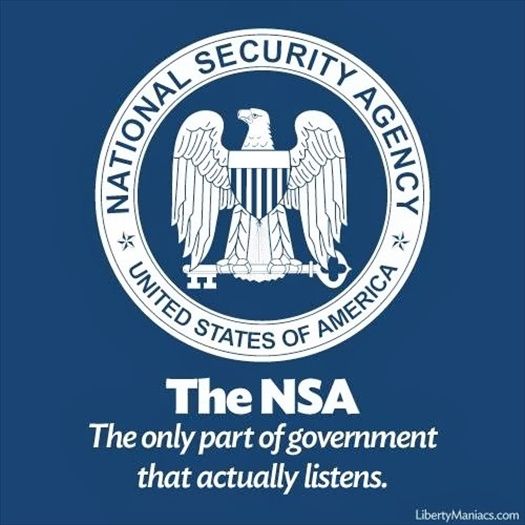February 11: “Day We Fight Back” global action vs. mass surveillance
by Maui Hermintanio, originally posted at the Philippine Online Chronicles
On February 11, thousands of websites will host banners urging people online and offline to demand their representatives to oppose and end the mass surveillance of the National Security Agency (NSA).
The activity called The Day We Fight Back is a global online event led by the Electronic Frontier Foundation (EFF), a network advocating internet freedom.
In 2006, EFF filed its first lawsuit challenging the constitutionality of NSA mass surveillance.
On January 18, 2012, the global online community mounted the largest online protest in history to oppose and defeat U.S. Stop Online Piracy Act (SOPA), a legislation that sought to censor the Internet in the name of copyright enforcement.
In January of last year, digital rights advocate, Aaron Swartz who founded Digital Progress which launched the campaign against the Internet censorship bills (SOPA/PIPA), took his own life. The EFF and digital rights movement around the world vowed to defend the rights of Internet users everywhere in his memory.
In its advisory, EFF said, the SOPA and PIPA protests were successful because we all took part, as a community. As Aaron put it, everybody “made themselves the hero of their own story.”
“Today we face a different threat, one that undermines the Internet, and the notion that any of us live in a genuinely free society: mass surveillance.”
The global internet action on February 11 targets the mass surveillance by the NSA.
“The Snowden revelations have provided us with disturbing details and confirmation of some of our worst fears about NSA spying. The NSA is undermining basic encryption standards, the very backbone of the Internet. It has collected the phone records of hundreds of millions of people not suspected of any crime. It has swept up the electronic communications of millions of people indiscriminately, exploiting the digital technologies we use to connect and inform.”
“But we aren’t going to let the NSA ruin the Internet. Inspired by the memory of Aaron, fueled by our victory against SOPA, EFF is joining forces with a coalition of liberty-defending organizations to fight back against NSA spying,” the EFF said.
NSA and Snowden
 The NSA’s domestic spying program, known as the “President’s Surveillance Program,” (“The Program”) was implemented by U.S. President George W. Bush shortly after the attacks on September 11, 2001.
The NSA’s domestic spying program, known as the “President’s Surveillance Program,” (“The Program”) was implemented by U.S. President George W. Bush shortly after the attacks on September 11, 2001.
It was revealed recently that the NSA collected almost 200 million text messages a dayfrom across the globe, using them to extract data including location, contact networks and credit card details, according to top-secret documents.
According to a report by the Guardian, on average, each day the NSA was able to extract:
• More than 5 million missed-call alerts, for use in contact-chaining analysis (working out someone’s social network from who they contact and when)
• Details of 1.6 million border crossings a day, from network roaming alerts
• More than 110,000 names, from electronic business cards, which also included the ability to extract and save images.
• Over 800,000 financial transactions, either through text-to-text payments or linking credit cards to phone users
• Geolocation data from more than 76,000 text messages a day, including from “requests by people for route info” and “setting up meetings”.
 The NSA used programs such as “Prefer” that conducted automated analysis on the untargeted communications and “Dishfire” that collected metadata information.
The NSA used programs such as “Prefer” that conducted automated analysis on the untargeted communications and “Dishfire” that collected metadata information.
Last year, Edward Snowden, an employee of NSA contractor Booz Allen Hamilton, divulged significant and extensive information about PRISM and the U.S. government’s top secret, domestic surveillance programs. Snowden left the U.S and passed confidential documents to media outlets including the Guardian and the Washington Post.
The 30-year old whistleblower is on exile in Russia despite suggestions from ranking U.S. officials, including U.S. President Barack Obama that he return to the United States to face trial for leaking information about the NSA.
“Returning to the US, I think, is the best resolution for the government, the public, and myself, but it’s unfortunately not possible in the face of current whistleblower protection laws, which through a failure in law did not cover national security contractors like myself,” Snowden said. He added, “there’s no chance to have a fair trial, and no way I can come home and make my case to a jury.”
Snowden recently took to the web for a chat on a WikiLeaks-affiliated website to raise money for his legal defense. He said he has “no regrets” about his actions. “Doing the right thing means having no regrets,” he said.
Call to action
In the U.S, thousands of websites will host banners urging people to call/email the U.S. Congress. People outside the will can demand their legislators to enact privacy protections for internet users.
Personalities and organizations have spoken out calling for an end to the NSA’s spy program.
Last week, Obama spoke seeking to calm a furor over U.S. surveillance. He called for ending the government’s control of phone data from hundreds of millions of Americans and immediately ordered intelligence agencies to get a secretive court’s permission before accessing the records.
Comedian Jon Stewart mocked Obama’s speech and orders to fine tune the NSA.
